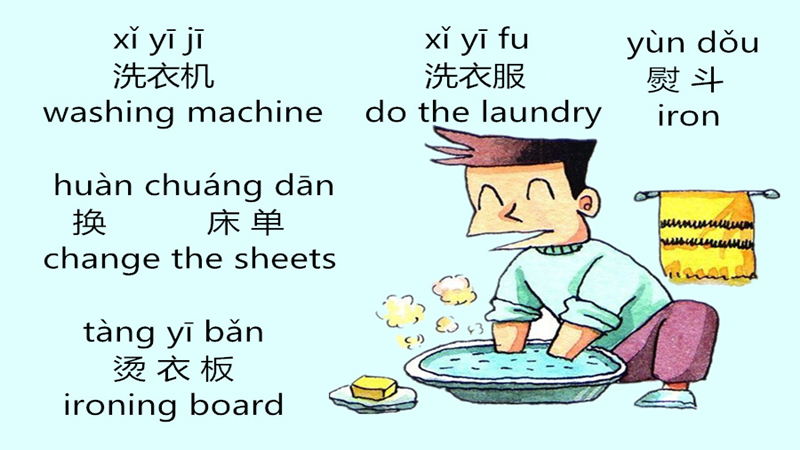
Click here to get a hard copy of this book
爱的细节
电台要选出一对最恩爱的夫妻。对比后,有三对夫妻入围。
评委叫第一对夫妻说说他俩是如何恩爱的。妻子说,前几年她全身瘫痪了,医生说她站起来的可能性很小。别人都觉得她的丈夫会跟她离婚,她也想过要自杀。但丈夫一直鼓励她,为她不知找了多少家医院,并且几年如一日地照顾她,从不抱怨。在丈夫的爱护和努力下,她终于又站了起来。她的故事十分感人,评委们听了都很感动。随后进来的是第二对夫妻,他俩十几年的婚姻生活中,他们从来没为任何事红过脸、吵过架,一直相亲相爱、相敬如宾。评委们听了暗暗点头。轮到第三对夫妻了,却很长时间不见人。评委们等得有些不耐烦,就走出来看个究竟。只见第三对夫妻仍然坐在门口,男人的头靠在女人的肩膀上,睡着了。一个评委要上前喊醒那个男的,女的却伸出手指做了个小声的动作,然后小心地从包里拿出纸笔,用左手歪歪扭扭写下一行字递给评委,而她的右肩一直让丈夫的脑袋靠着。评委们看那纸条上面写着:别出声,他昨晚没睡好。一个评委提起笔在后面续写了一句话:但是女士,我们得听你们夫妻俩的叙述啊!女人又写:那我们就不参加了大家很吃惊,这个女人为了不影响丈夫睡觉,居然放弃这次机会!但评委们还是决定先不催他们,而是再等待一段时间。过了一会儿, 男人醒了。评委们问他怎么那么累。男人不好意思地笑笑说: "我家住一楼,蚊子多。昨晚半夜我被蚊子叮醒了,我怕我老婆再被吵醒,所以后半夜就在为她赶蚊子。最后的结果是电台增加了两项奖项,将第一对夫妻评为患难与共夫妻,将第二对夫妻评为相敬如宾夫妻,而真正的最恩爱夫妻奖却给了第三对夫妻。
Click here to get a hard copy of this book
电台: diàntái: broadcasting station / radio station
选出: xuǎnchū: to pick out / to select / to elect
一对: yīduì: couple / pair
恩爱: ēn'ài: loving affection (in a couple) / conjugal love
夫妻: fūqī: husband and wife / married couple
对比: duìbǐ: to contrast / contrast
对: duì: classifier: couple
入围: rùwéi: to get past the qualifying round / to make it to the finals
评委: píngwěi: evaluation committee / judging panel
如何: rúhé: how / what way
全身: quánshēn: whole body
瘫痪: tānhuàn: paralysis / be paralyzed
站起来: zhànqǐlai: to stand up
可能性: kěnéngxìng: possibility / probability
离婚: líhūn: to divorce
自杀: zìshā: to kill oneself / to commit suicide
鼓励: gǔlì: to encourage
不知: bùzhī: not to admit (defeat, hardships, tiredness etc)
从不: cóngbù: never
如: rú: as / as if / such as
照顾: zhàogu: to take care of
抱怨: bàoyuàn: to complain / to feel dissatisfied
爱护: àihù: to cherish / to love and protect
十分: shífēn: extremely / hundred percent
感人: gǎnrén: touching
随后: suíhòu: soon after
进来: jìnlái: to come in
婚姻: hūnyīn: wedding / marriage
从来没: cóngláiméi: have never
任何: rènhé: any / whatever
事: shì: matter
吵: chǎo: to quarrel
架: jià: rack / cause extreme pain
相亲相爱: xiāngqīnxiāng'ài: to be kind and love one another (idiom)
相敬如宾: xiāngjìngrúbīn: to treat each other as an honored guest (idiom) / mutual respect between husband and wife
暗暗: àn'àn: secretly / inwardly
点头: diǎntóu: to nod (lower and raise one's head slightly and briefly)
轮到: lúndào: to be (somebody's turn)
不见: bùjiàn: not to see / to be missing
不耐烦: bùnàifán: impatience / impatient
走出: zǒuchū: to go out through (a door etc)
究竟: jiūjìng: to go to the bottom of a matter / after all
头: tóu: head
靠: kào: to lean against or on
肩膀: jiānbǎng: shoulder
睡着: shuìzháo: to fall asleep
上前: shàngqián: to advance / to step forward
喊: hǎn: to call out for (a person)
醒: xǐng: to wake up
伸出: shēnchū: to extend
手指: shǒuzhǐ: finger
小声: xiǎoshēng: in a low voice / (speak) in whispers
动作: dòngzuò: movement / action
拿出: náchū: to take out
左手: zuǒshǒu: left hand / left-hand side
歪歪扭扭: wāiwāiniǔniǔ: not straight / staggering from side to side
一行字: yīxíng zì: one line
递: dì: to hand over
右: yòu: right (-hand)
肩: jiān: shoulder
脑袋: nǎodai: head
纸条: zhǐtiáo: slip of paper
上面: shàngmiàn: on top of
出声: chūshēng: to give voice
提起: tíqǐ: to mention
后面: hòumiàn: back / behind
续: xù: to continue
一句话: yījùhuà: in a word / in short
女士: nǚshìlady / madam
叙述: xùshù: to relate (a story or information) / to tell or talk about / narrative
吃惊: chījīng: to be shocked / to be amazed
居然: jūrán: unexpectedly / to one's surprise
催: cuī: to urge
蚊子: wénzi: mosquito
半夜: bànyè: midnight
叮: dīng: to sting or bite (of mosquito, bee etc)
老婆: lǎopó: wife
吵醒: chǎoxǐng: to wake sb up with a noise
项: xiàng: classifier for principles, items, research projects etc
奖: jiǎng: Award
将: jiāng: used in the same way as 把
患难与共: huànnànyǔgòng: to share weal and woe(In both prosperity and adversity)idiom







